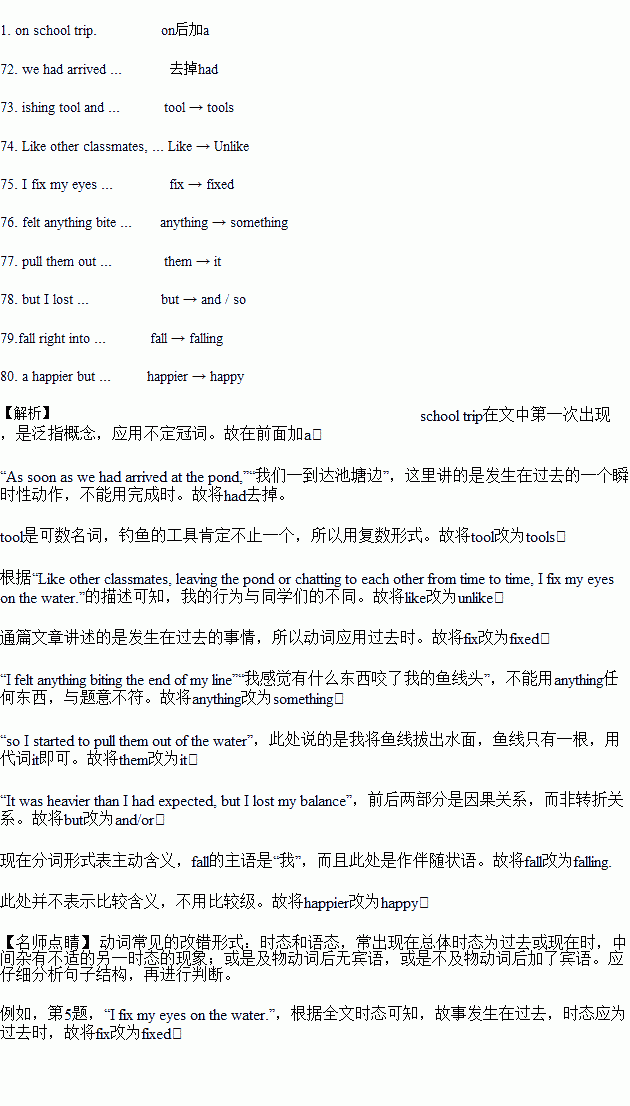题目内容
文中共有10处语言错误,每句中最多有两处。错误涉及一个单词的增加、删除或修改。
增加:在缺词处加一个漏字符号(∧),并在其下面写出该加的词。
删除:把多余的词用斜线(\ )划掉。
修改:在错的词下画一横线,并在该词下面写出修改后的词。
注意: 1. 每处错误及其修改均仅限一词;
2. 只允许修改10处,多者(从第11处起)不计分。
Last weekend, we tried fishing on school trip. As soon as we had arrived at the pond, I made preparations for it, including fishing tool and food to attract fish. Like other classmates, leaving the pond or chatting to each other from time to time, I fix my eyes on the water. After a while, I felt anything biting the end of my line, so I started to pull them out of the water. It was heavier than I had expected, but I lost my balance, fall right into the pond! That was my first fishing experience, a happier but embarrassing experience.
练习册系列答案
 中考解读考点精练系列答案
中考解读考点精练系列答案
相关题目

